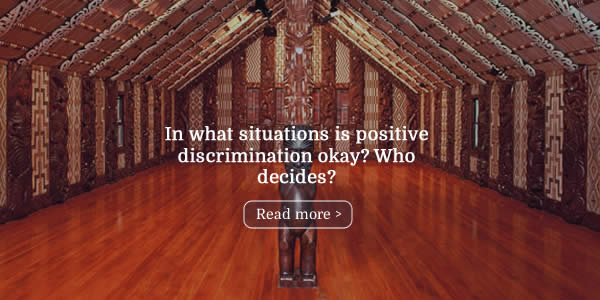Positive discrimination is not wrong per se, in fact sometimes it is necessary to overcome the lingering disadvantage faced by certain groups. However, it must be used carefully to ensure it doesn’t increase resentment or division in society. Favouring any group on the basis of descent (or any other unchangeable characteristic) provides an incentive for a person to focus on that aspect of their identity to the detriment of other aspects of their identity. It also risks increasing divisions within society as people see other groups getting favourable treatment.
There are a couple of things to bear in mind when considering positive discrimination:
- How much positive discrimination is needed? Most discussions on this issue leap instantly to creating quotas to ensure certain groups ‘get their share’. Is that always the best way forward? There are many other options, such as offering targeted support to help more people from the disadvantaged group access the service or achieve the required level. This approach is already used successfully in some parts of the health sector where community outreach workers ensure that disadvantaged groups get access to the services they need.
- Responses must be proportionate to the issue. We must be careful not to use positive discrimination over inappropriate issues. For example, it is clear that iwi have a unique voice over issues involving local resources. Does that mean that they should have a guaranteed seat at the Council table, to input on all matters ranging from library fees to bus tickets?
Who decides whether to positively discriminate? Ultimately the public must be calling for it. Of course some would claim that this puts any change at the tyranny of the majority, when it may be in their interest to keep certain groups oppressed. However, most New Zealanders are committed to equality of opportunity – that people should have a fair go. The majority has to be on board with changes if they are going to be durable. We have to inform the public of the issues that are faced by disadvantaged groups and let them work out the appropriate solution.
One way to do this could be through citizens’ assemblies – small gatherings of members of the public. These allow the public to express their views directly, rather than having their views filtered through so-called experts or officials.

